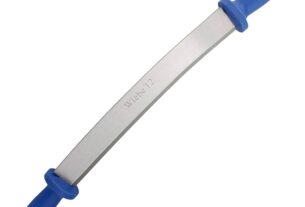Are you looking for the right tool to help you keep your data secure? Look no further! As a cryptographer, you need equipment that is reliable and efficient. With so many options available in the market, it can be overwhelming to choose the perfect one. But don’t worry, we have got you covered.
In this guide, we will take you through the essential tools that every cryptographer needs. From software to hardware, we will help you understand the features and specifications required to make an informed choice.
So, let’s dive in!
[h2]What is Cryptography?[/h2]
Before we get into the details of tools required by a cryptographer, let’s first understand what cryptography is.
Cryptography is a technique used to protect sensitive information from unauthorized access or theft. It involves transforming plain text into cipher text using algorithms and keys. The recipient can only decode the message if they have access to the key.
Cryptography has been used since ancient times to protect messages during wars and diplomatic communications. In today’s digital age, cryptography is used extensively to secure data transmitted over networks such as the internet.
[h2]Essential Tools for a Cryptographer[/h2]
[h3]1. Encryption Software[/h3]
Encryption software is one of the most critical tools for a cryptographer. It allows users to convert plain text into cipher text using sophisticated algorithms and keys. There are several encryption software options available in the market, both free and paid.
Some popular encryption software includes VeraCrypt, BitLocker, GnuPG, and AxCrypt. These software offer different levels of security and features such as file encryption, disk encryption, and email encryption.
It’s important to choose encryption software that meets your specific requirements based on your usage scenario.
[h3]2. Hardware Security Module (HSM)[/h3]
Hardware Security Modules are physical devices that store and manage cryptographic keys. HSMs offer a higher level of security compared to software-based solutions since they are tamper-resistant.
HSMs are commonly used in applications such as e-commerce, banking, and payment processing. They help protect sensitive data such as credit card information and personal identification numbers.
Some popular HSM vendors include Thales, Gemalto, and Utimaco. It’s essential to choose an HSM that meets your specific requirements based on your application needs.
[h3]3. Digital Certificates[/h3]
Digital certificates are used to verify the authenticity of online entities such as websites or individuals. They use public key infrastructure (PKI) technology to ensure that the entity is who they claim to be.
Digital certificates are issued by Certificate Authorities (CA), which act as trusted third parties. Some popular CA vendors include DigiCert, GlobalSign, and Comodo.
It’s essential to choose a reputable CA vendor when obtaining digital certificates to ensure maximum security.
[h3]4. Key Management Systems[/h3]
Key management systems help cryptographers manage cryptographic keys securely. They provide features such as key generation, storage, and distribution.
There are several key management systems available in the market, both hardware-based and software-based. Some popular vendors include Amazon Web Services (AWS) Key Management Service (KMS), Google Cloud Key Management Service (KMS), and Microsoft Azure Key Vault.
It’s crucial to choose a key management system that meets your specific requirements based on your usage scenario.
[h2]Conclusion[/h2]
In conclusion, choosing the right tools for a cryptographer is critical for maximum security. Encryption software, hardware security modules, digital certificates, and key management systems are essential tools required by a cryptographer.
Choosing the right tool depends on several factors such as usage scenario, security requirements, and budget. It’s essential to conduct thorough research before making an informed choice.
We hope this guide has helped you understand the essential tools required by a cryptographer. Stay safe and secure!
Wiki Reference: https://en.wikipedia.org/wiki/Cryptography




